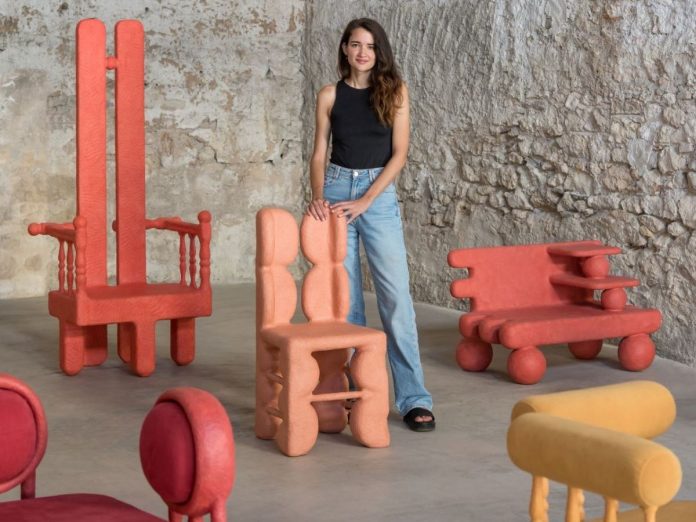Polina Miliou (b. 1990) is a young Greek artist based between Athens and Los Angeles, whose practice involves upcycling found furniture into unique sculptural objects imbued with playfulness, curiosity, and a definitive feminine aura. With their organic and animated forms, as well as their vivid colours, Miliou’s creations are like cheerful creatures, each with its own, individual personality.
In the main space of the Carwan Gallery in the city of Athens, a spacious hall set in the meanders of the industrial area of Piraeus, the city’s main port, Miliou presented the Kyklos collection, a body of work that is characterised by rounded, organic shapes and an exploration of symbology and fundamental geometry. The show’s primitive and instinctive palette of colours plunges the observer into an oneiric journey across the various shades of the warm Cycladic light.
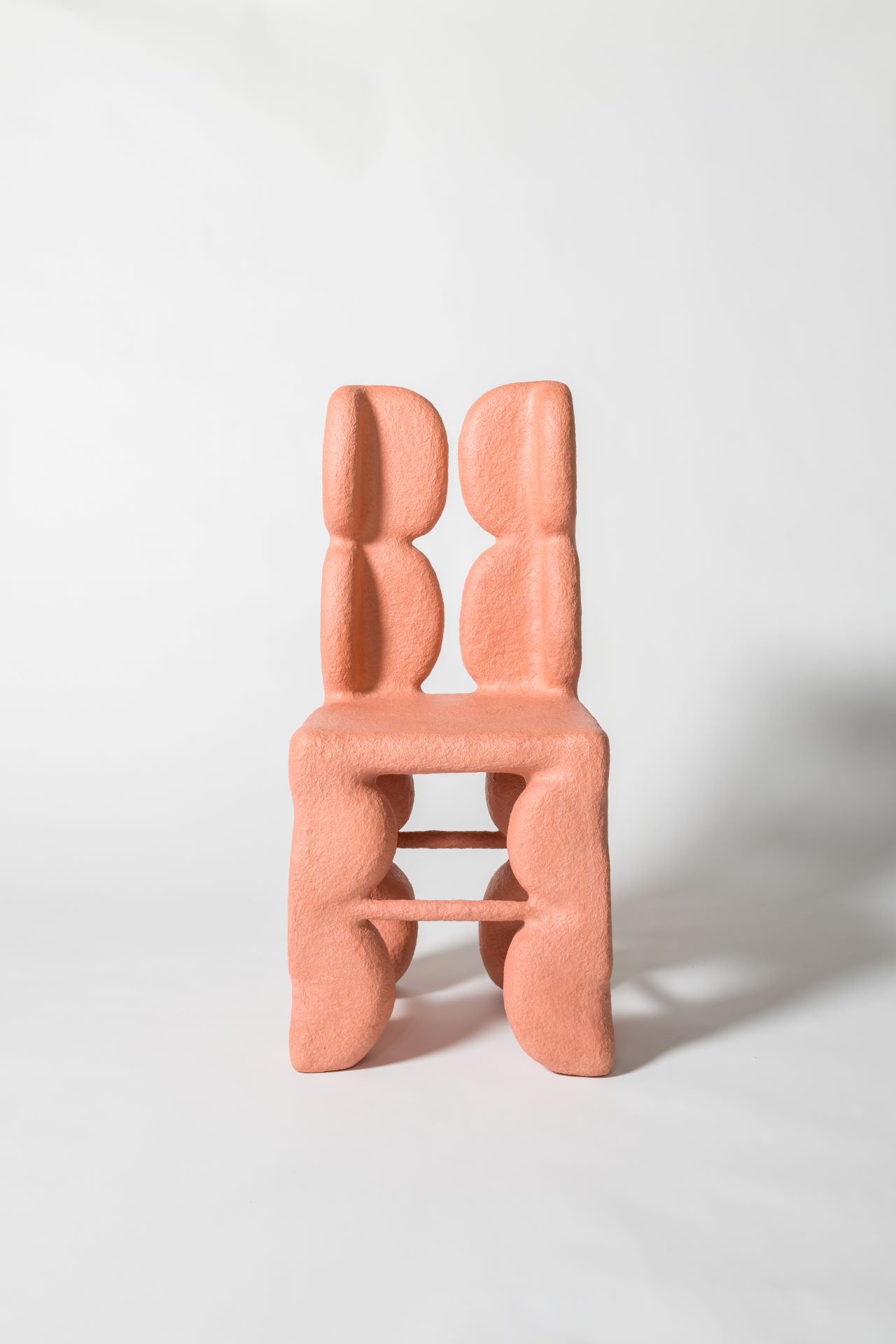
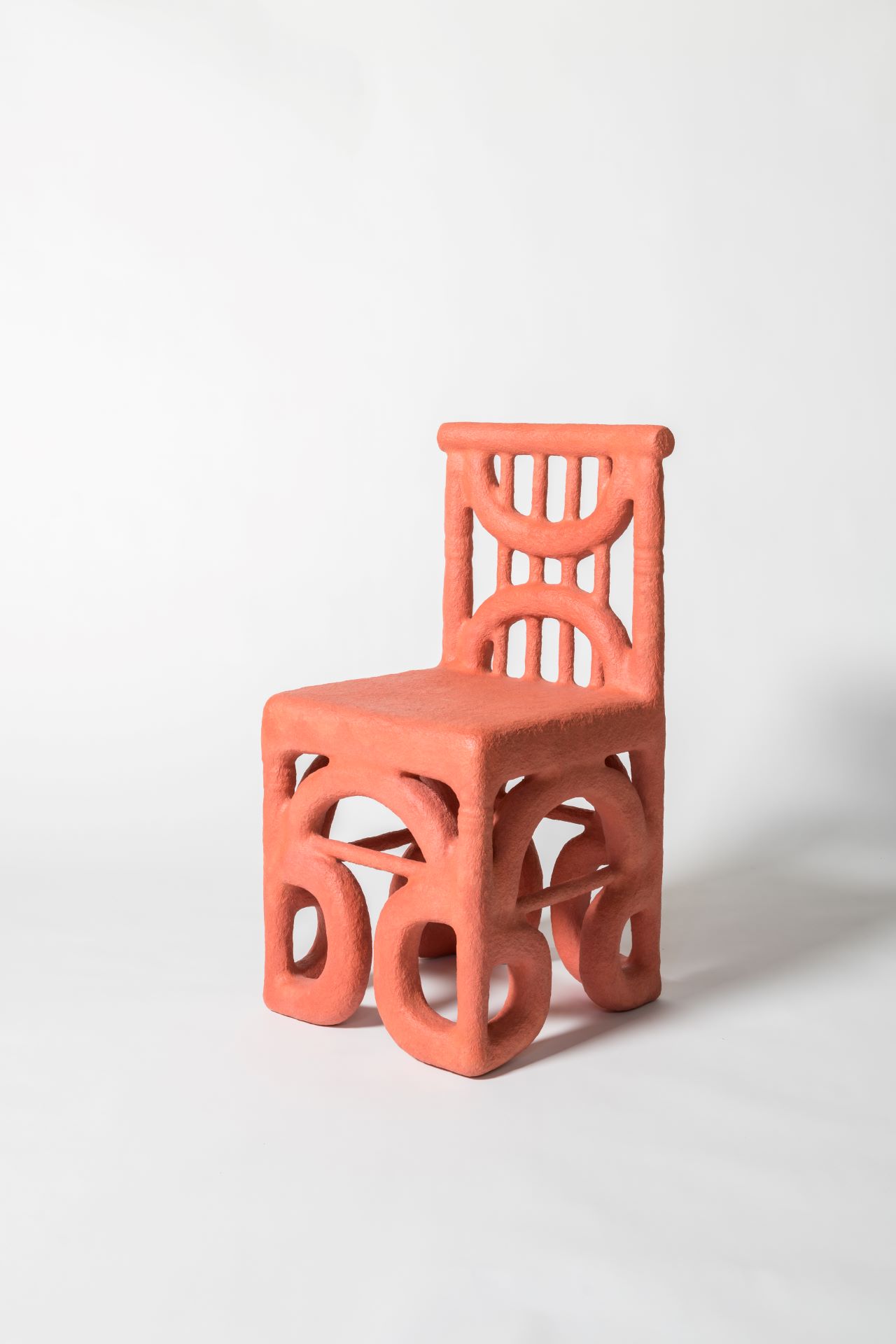
In her work, Miliou draws inspiration from her heritage and personal environment. On the one hand, she revisits the rounded geometries and abstract forms of early Cycladic figurines; and on the other, she draws from video games and animation characters, an influence evident in the ludicity and humour present in her work. For the artist, the connection between these two worlds (i.e. that of prehistoric Cycladic figurines and modern pop culture) lies in the way she approaches the naive, the primitive, and the originary.
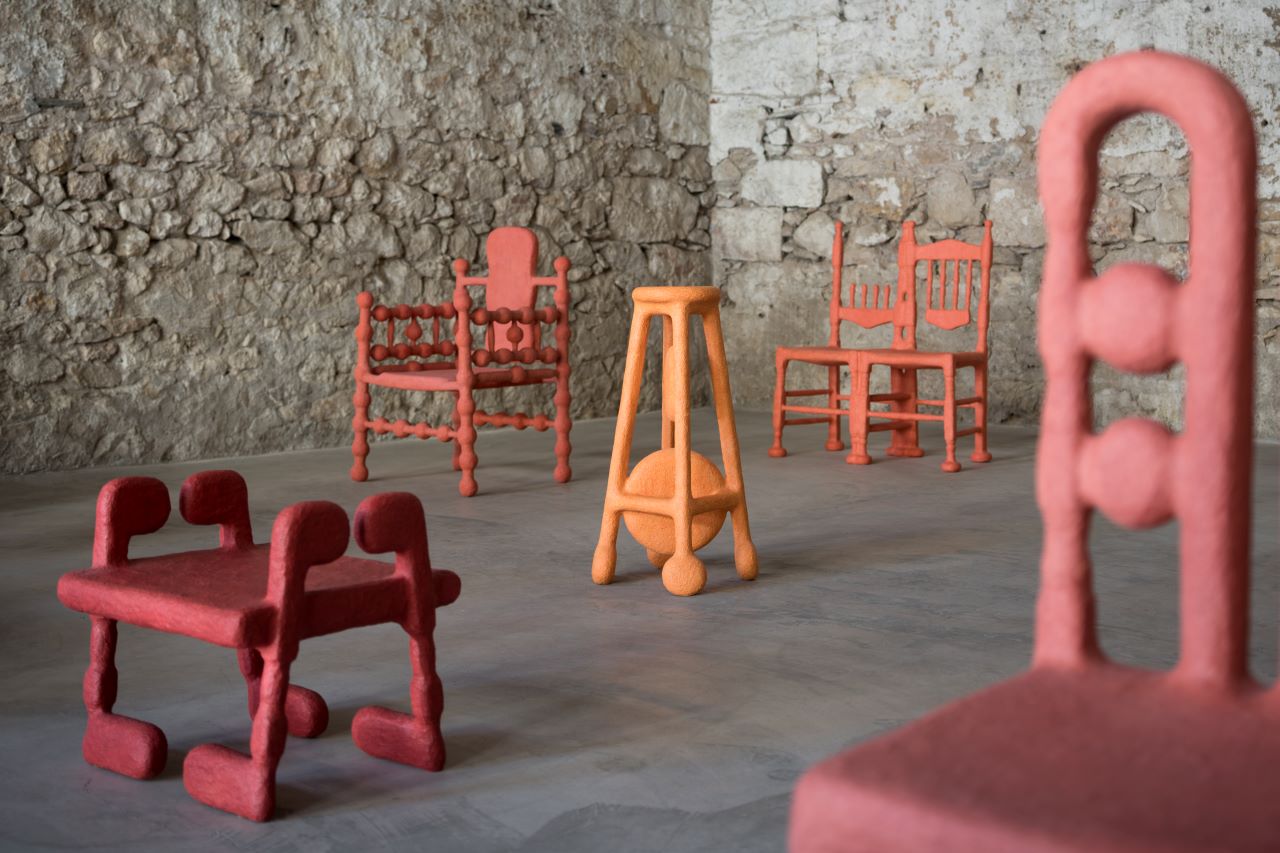
For her solo show at Carwan, the artist adds a new layer to her practice, which is the transformation of existing furniture into new, exuberant bodies. To create the whimsical objects seen at KYKLOS, the artist first scouts local flea markets for used furniture, particularly traditional Greek wicker chairs, which she then sculpts by hand in a freeform, improvisational way using a mixture of paper pulp the artist makes herself. Pigment is mixed into the pulp as well (the objects are not painted over), in order to achieve a bright, solid, and durable effect. Each colour vibrates with its own energy, and is referencing the Cycladic sky at different times of the day. The cycle of the sun thus becomes part of the fluid geometric theme the artist has set up for this exhibition.
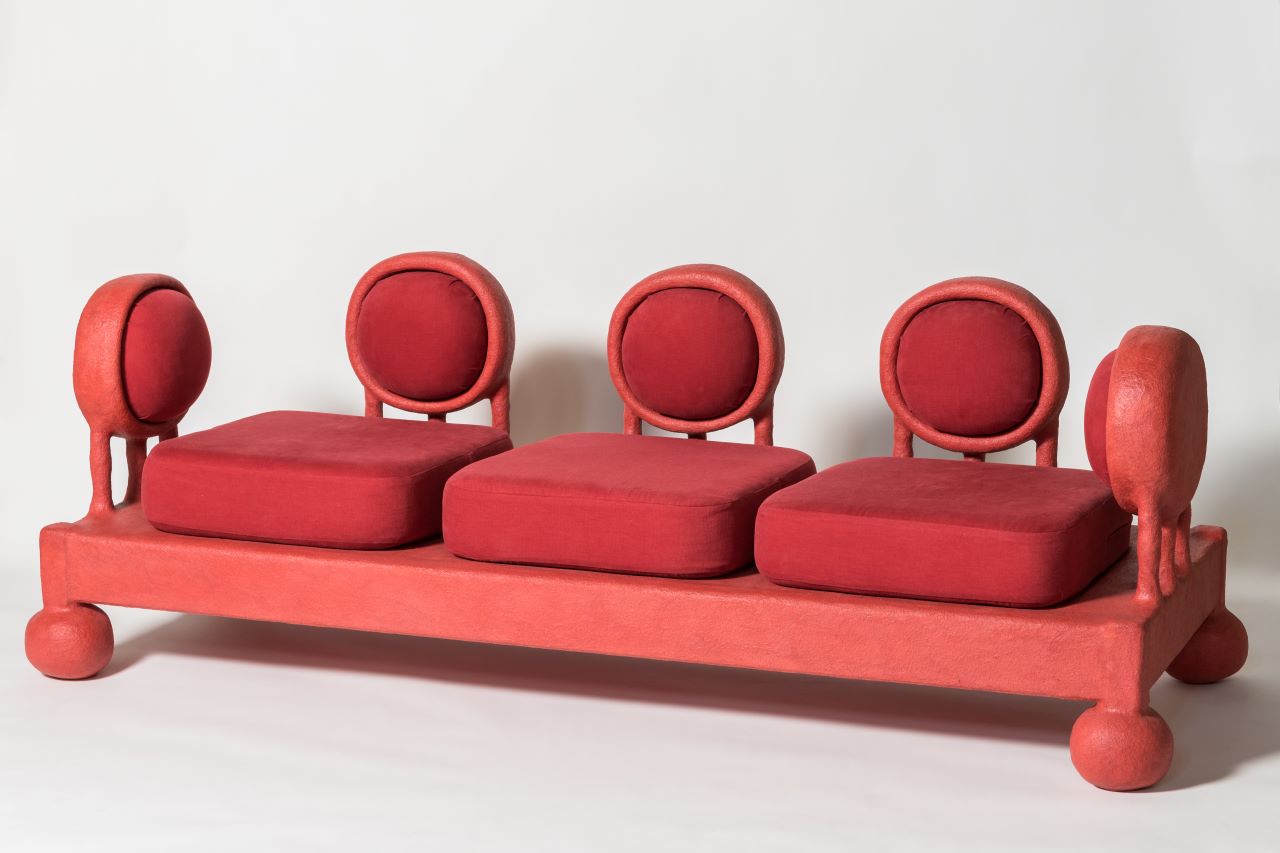
The name of the exhibition comes from the ancient Greek word kyklos — meaning the circle, but also the sky — which in turn would give its name to the Cyclades archipelago, because the ancients believed that these islands were arranged in a circle around the sanctuary of Apollo on Delos. Found all across these islands, the small stone figurines of the Bronze-age Cycladic civilisation possess strikingly proportions and a unique curved geometry. Probably of religious significance, these prehistoric artefacts were originally painted over, with pigments used to add details of garments and body parts.
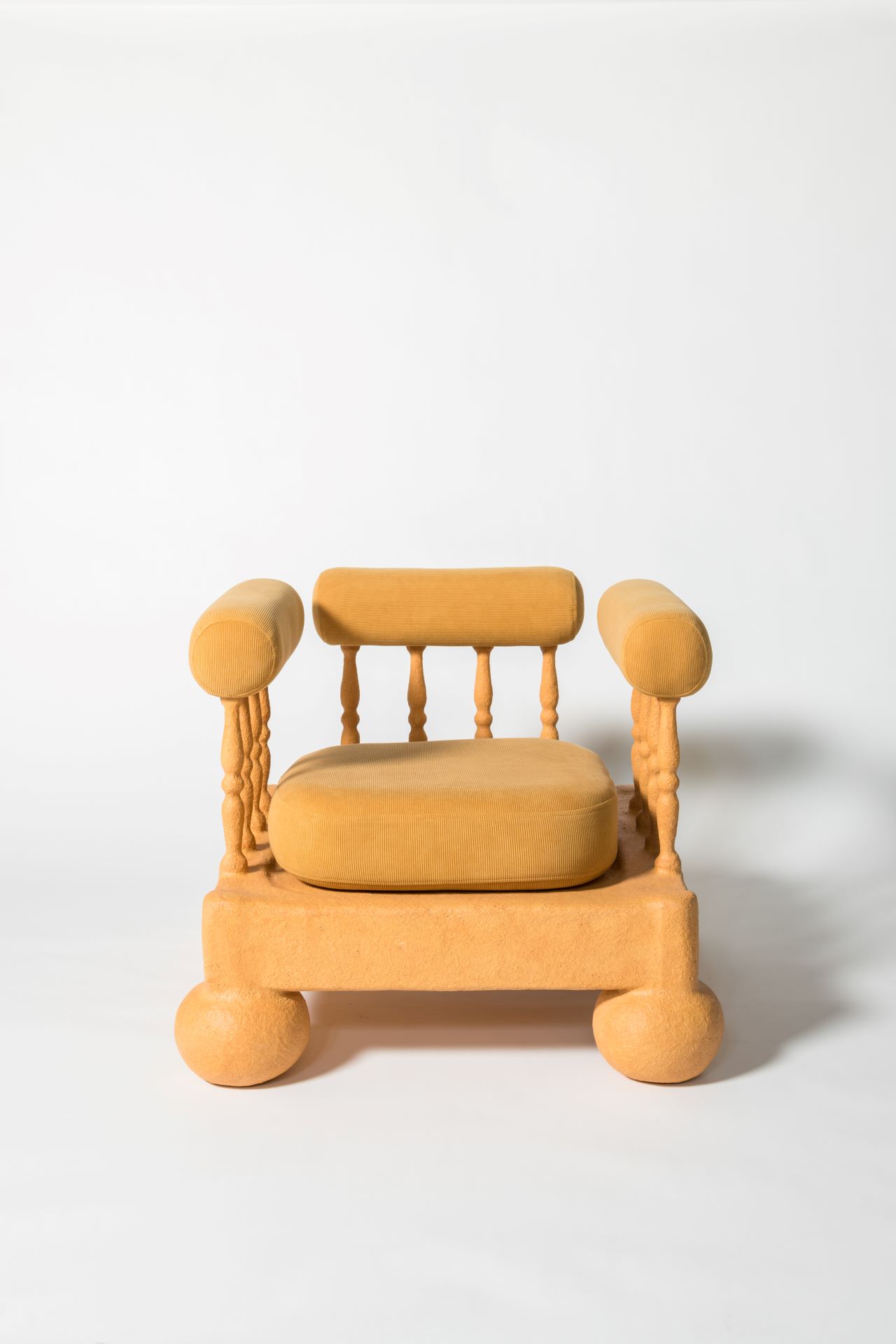
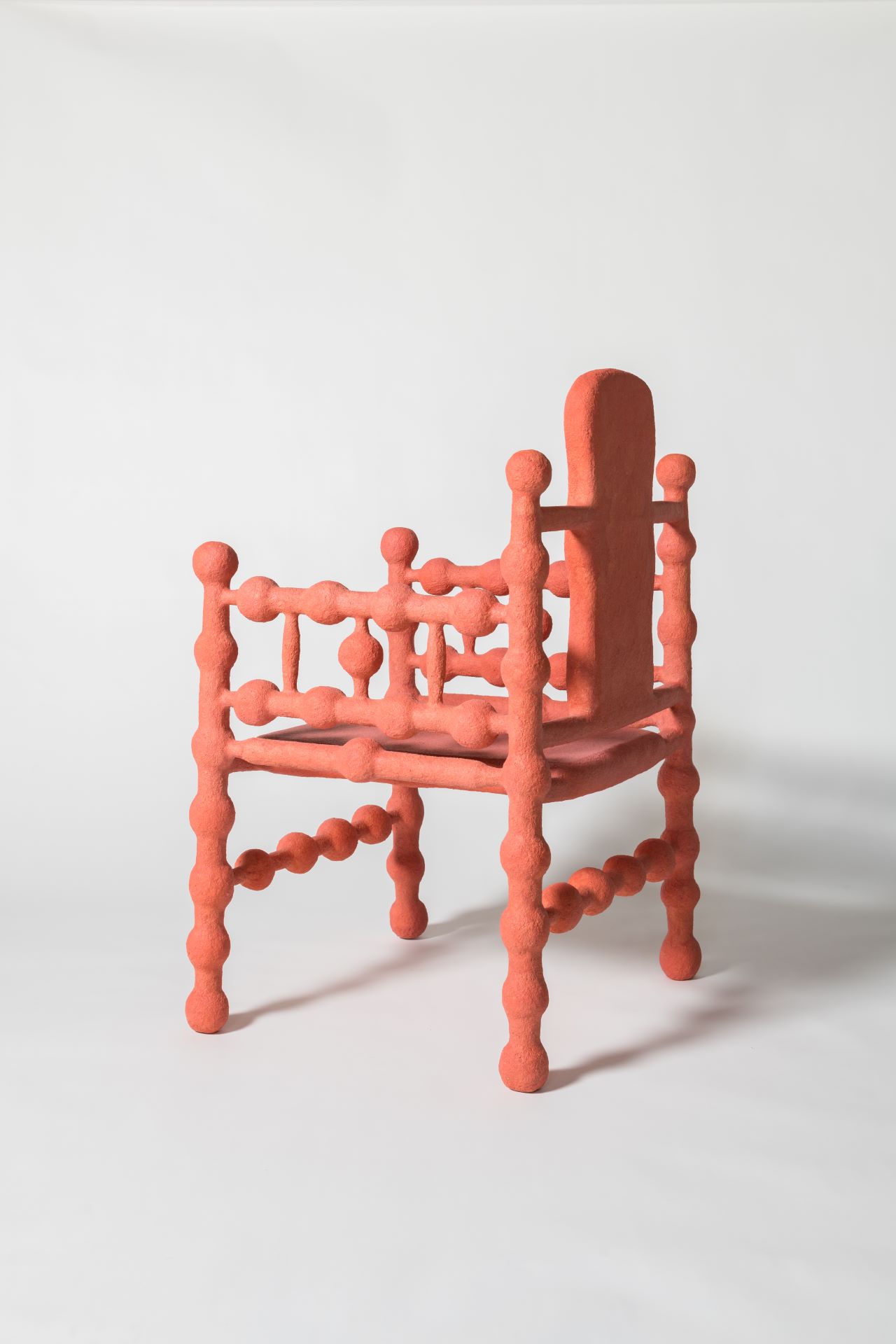
For Kyklos, Polina Miliou revisits these figurines and their quintessentially Greek formal vocabulary, in a playful exploration of organic geometries and pop animism. Using exclusively handmade techniques that emphasise intuition and play, she gives her objects a circular rhythm expressing the natural movement of the hand caressing a surface, all the while developing a design language that is consistent, yet relaxed. Combining the monolithic with the intimate and the curvaceous with the linear, the objects at the exhibition evoke a sense of unburdened, childlike exploration and imaginative world-building.
This is Carwan’s first solo show by a Greek female artist, which also adds another layer to the gallery’s representation, especially in regard to showcasing new talent from Greece.

